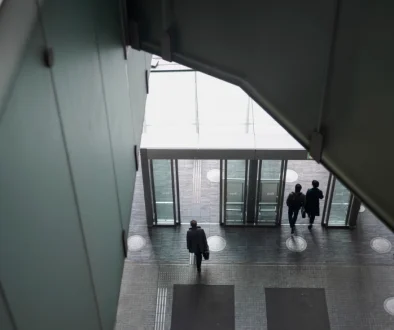Law 2540 of 2025 — Arbitration for Enforcement Proceedings
Starting in 2026, a new law will come into effect that will transform how asset seizures and judicial collection processes are carried out in Colombia.
This is Law 2540 of 2025, a regulation that allows enforcement proceedings—such as seizures—to be handled through arbitration, that is, outside of traditional courts.
The purpose is to enable companies to recover their debts more quickly and to reduce the current congestion in collection courts.
Its implementation date is set for February 27, 2026. From that date onward, it will be possible, in cases authorized by law, to initiate an arbitral enforcement proceeding when a valid arbitration agreement exists between the parties.
What changes with this law?
Until now, when a company or individual owed money and failed to pay, the judicial collection process could only take place before a civil judge. With the new Law 2540, it will also be possible to initiate the process before an arbitration tribunal, provided that both parties have agreed to it in a document known as an arbitration agreement.
This means that if both creditor and debtor agree, the seizure of assets, vehicles, or real estate—as well as the forced collection of a debt—may be resolved by arbitrators without having to go to ordinary courts.
What is arbitration?
Arbitration is an alternative dispute resolution mechanism. Instead of having a State judge decide the case, the parties agree that it will be resolved by specialized arbitrators—usually lawyers with expertise in commercial or financial matters.
Arbitrators operate within an Arbitration Center, review evidence, and issue a final decision (arbitral award) that carries the same legal weight as a judicial ruling. With Law 2540 of 2025, this system can now also be used for enforcement proceedings, such as debt recovery, seizures, or auctions.
Requirements to use arbitration in judicial collections
- There must be a valid arbitration agreement—that is, an explicit agreement in which both parties accept to use arbitration if a dispute or debt arises. ⚠️ This agreement cannot be included within the promissory note or invoice, but must appear in a separate or annexed document, expressly stating the authorization.
- There must be a valid enforceable title, such as an accepted electronic invoice, promissory note, contract, or court judgment.
- In cases involving consumers or individuals, the law requires that the arbitration clause be clearly explained and allows a 60-day period for withdrawal.
- The arbitral process cannot last more than 12 months from its initiation.
Why was this law approved?
The main objective is to reduce court congestion and provide faster, more specialized mechanisms for debt collection. Currently, a seizure process can take several years. Arbitration will make proceedings faster, as arbitrators focus exclusively on the case, without handling thousands of simultaneous files.
Furthermore, arbitration offers greater legal certainty for companies, since arbitrators are usually experts in commercial law and enforcement titles.
What advantages does it offer?
- Faster process: The arbitral process has a maximum duration of 12 months.
- Greater specialization: Arbitrators are legal experts in collections and contracts.
- More agile precautionary measures: Seizures or asset freezes can be ordered more quickly.
- Reduced court congestion: Waiting times in judicial courts will decrease.
And the disadvantages?
- Higher initial costs, since the fees of the arbitration center and arbitrators must be covered.
- If the arbitration agreement is not properly drafted, the process could be invalidated.
- In cases involving consumers or small debtors, careful management is required to avoid infringing on rights.
What is the applicable seizure amount?
Although Law 2540 regulates the arbitral enforcement route, the limits of unseizable assets remain those established by current legislation and oversight circulars, such as those from the Financial Superintendence. These rules are not eliminated by Law 2540; arbitrators must respect existing non-seizure regulations.
What should companies and creditors do now?
- Review contracts and instruments: If the arbitral route is to be used, include (separately) an enforcement arbitration agreement.
- Verify whether the counterparty is a consumer: If so, apply the proper deadlines and withdrawal requirements.
- Prepare valid enforceable titles: Electronic invoices, promissory notes, or contracts must meet all legal formalities.
Law 2540 of 2025 represents an important step toward modernizing debt collection in Colombia. Once it comes into effect, debts may be enforced through arbitration, provided a valid agreement exists between the parties. This does not replace traditional seizures but offers a faster and more specialized route to recover funds effectively.
At Trébol Jurídico, we will continue to provide updates on this and other legal developments affecting pre-legal and legal collection processes in Colombia and Latin America.




